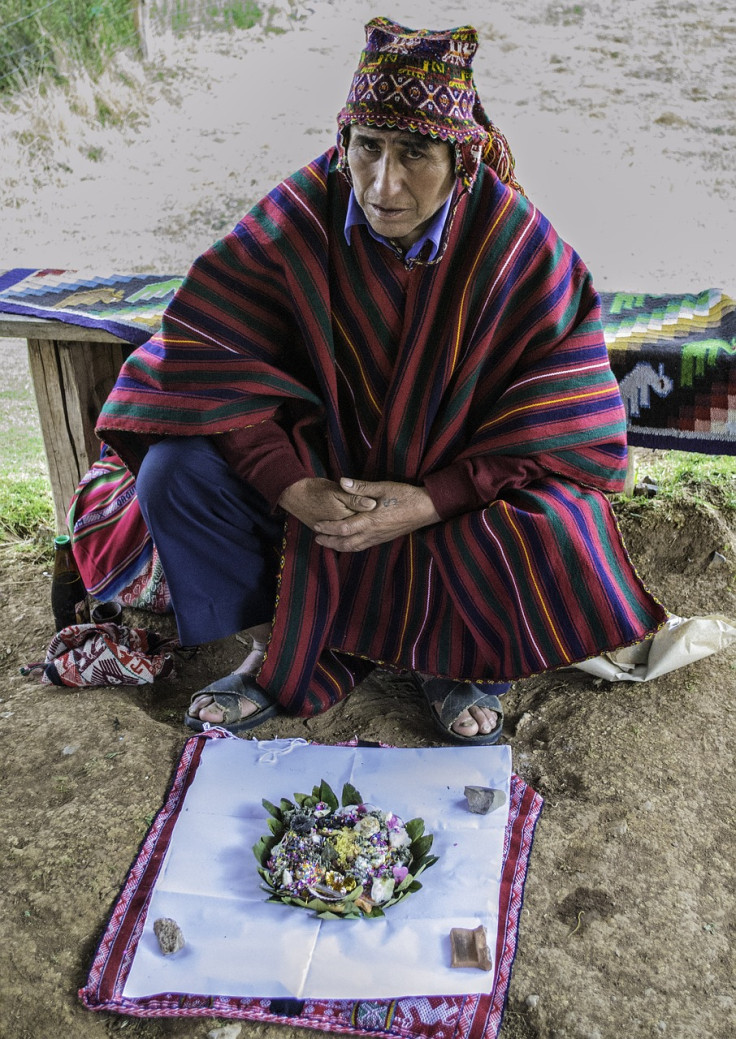
The mental well-being of Latino individuals is intricately intertwined with cultural factors that shape their experiences. Understanding these cultural dynamics is essential for fostering culturally sensitive support systems and promoting holistic well-being within this diverse community.
In the following piece, we will explore the multifaceted realm of cultural influences on mental health that impact the Latino community. From the significance of familismo (close family ties) and respeto (respect) to the impact of acculturation, we will unravel these intricate threads to gain a deeper appreciation for the challenges and strengths within Latino communities. By doing so, we can pave the way for a more inclusive and comprehensive approach to supporting Latino mental health.
Now let's find out how many aspects of Latino life factor into our mental health.
Cultural Influences
We are who we surround ourselves with. Shaping culture at the same time culture shapes us. There are many reasons why cultural influences hold a significant weight when looking at mental health.
Family Dynamics and Support Systems
Let's dive into the lively waters of Latino family dynamics and mental health! It's like being part of a never-ending telenovela, complete with dramatic plot twists and passionate discussions over Sunday dinner. Our families can be a source of strength, but let's face it, they can also drive us a little loco at times.
Remember, when your aunts start comparing your achievements to your cousins? It's okay to roll your eyes and laugh it off. Embrace the chaos and cherish the love, because navigating those family waters is all part of the beautiful, sometimes hilarious, tapestry of our mental well-being.
Cultural Expectations and Gender Roles
Ah, cultural expectations and gender roles – those unwritten rules that sometimes make us scratch our heads. Ladies, you know what I'm talking about when 'abuelita' gives you that look of disapproval because your culinary skills aren't quite up to par with hers. And gentlemen, who needs the gym when your tías are convinced you can lift a whole truck with a single hand?
Let's not let these expectations hold us back. It's time to break free from those molds and live life on our terms. Whether you're a chef or a truck enthusiast, embrace your passions, challenge the norms, and remember that mental health is about being true to yourself, even if that means bucking tradition with a smile.
Acculturation and Identity
Ah, the dance of acculturation – like salsa meets hip-hop, blending the best of two worlds. Sometimes it feels like trying to master two dance styles simultaneously, with a few missteps along the way. Embracing both our cultural roots and the influences of the world around us can be a delightful mix of confusion and self-discovery.
Every Chicano knows the grueling battle that is trying to show others we are not simply a culture in the middle, but a culture all of our own. Too many times have I heard from family members that I am "leaving my roots behind," making me feel like I have to carry around a molcajete to make them stop questioning my identity. There is also rejection from our American peers, that at times is hidden but extremely real. Too American for Latino and too Latino for Americans.
But fear not, my fellow cultural nomads, for it is in this dance of cultures that we find the magic. Embrace the quirks, celebrate the mix, and remember that your journey of self-discovery is uniquely yours.
Language and Communication
Language is the tool that connects the world. But at times, this tool might be a detriment for those seeking help for their mental health.
Language Barriers and Accessing Mental Health Services
For many Latino individuals, not speaking English fluently can make accessing mental health services feel like trying to decipher a secret code. But fear not, because there are allies out there who understand the importance of breaking those language barriers.
From Spanish-speaking therapists to interpreters, these heroes are here to ensure that everyone can have their mental health needs met. So, let's grab our linguistic lassos and bridge those communication gaps, because everyone deserves access to support, no matter the language they speak.
Importance of Culturally Competent Therapy
Picture finding a therapist who not only understands your mind but also appreciates the beauty of your culture. Culturally competent therapy is like finding a confidant who speaks your heart's language. It's about creating a safe space where cultural identity is celebrated with the same enthusiasm as a lively 'fiesta'.
And let's not forget the power of bilingual professionals, those mental health superheroes who can seamlessly switch between English and Spanish. By seeking out these language-shifting champions, we can ensure that our mental well-being is understood and nurtured, in whichever linguistic dance we choose to sway.
Linguistic Factors Shaping Mental Health Experiences
Our words hold the power to shape our mental health experiences like the rhythm of a catchy reggaeton beat guiding our emotions. Language is more than just a tool; it's a portal into our thoughts, feelings, and expressions.
For Latino individuals, linguistic factors play a jumbo-sized role in shaping our mental well-being. From the colorful expressions unique to our culture to the idioms that capture our experiences, language paints a vibrant mural on the canvas of our minds.
Let's embrace the richness of our languages, giving voice to our emotions and celebrating the linguistics that makes us who we are. After all, mental health deserves to be expressed in the language closest to our hearts.
Stigma and Help-Seeking Behavior
Addressing the problem is the first step. What can we do to nurture our mental health?
Cultural Beliefs and Attitudes Toward Mental Health
Let's shine a spotlight on the cultural beliefs and attitudes that sometimes make mental health conversations feel like a whispered secret. In many Latin communities, the topic of mental health can be as elusive as that one aunt who mysteriously disappears at family gatherings. But hey, we're here to unravel the layers and break the silence.
Cultural beliefs may vary, with some viewing mental health challenges as a sign of weakness or even taboo. But let's challenge those beliefs together, shall we? Mental health is not a reflection of strength or weakness; it's about embracing our well-being and understanding that seeking help is a courageous act.
Let's bust those myths, sprinkle in some education, and create a space where mental health is as familiar a topic as 'abuelita's' delicious tamales.
Addressing Stigma Through Community Education
Education is the superpower that can defeat the mightiest of stigmas. When it comes to mental health, community education is like the superhero team-up we've been waiting for. It's about raising awareness, debunking myths, and giving our Latin community the tools to navigate the mental health landscape with confidence.
Let us host workshops, share resources, and create safe spaces where conversations about mental well-being are as common as a coffee cup at midnight. By empowering ourselves and our loved ones with knowledge, we can kick stigma to the curb and create a community that embraces mental health with open arms.
Promoting Help-Seeking Behavior Within the Latin Community
One of the most difficult challenges is promoting help-seeking behavior within our Latin community. We know that asking for help can sometimes feel as daunting as presenting in front of a crowd for the first time. But fear not, because together, we can shift the narrative.
Let's normalize reaching out for support. It's about fostering a culture where seeking help is seen as a strength, not a weakness. Let us share stories of resilience, showcase role models who have embraced mental health journeys, and remind ourselves that we all deserve to thrive.
So, let's be each other's cheerleaders, encouraging one another to take that courageous step toward well-being.
Tradition and Modernism

Within Latin communities, traditional healing practices bring a touch of ancient wisdom and a dash of cultural magic to the world of mental health. One standout practice is curanderismo, a holistic approach to healing that can make you feel like you're tapping into the secrets of the universe. Curanderos and curanderas, the wise healers of our communities, harness their knowledge of herbs, rituals, and energetic practices to restore balance and harmony in our minds, bodies, and spirits.
Now, let's talk about limpias, the deep-cleansing rituals that make you feel lighter than a feather caught in a gentle breeze. Picture this: sage and copal smoke swirling around, eggs or fruits gliding over your aura, and feathers delicately brushing away any bad vibes. These spiritual cleansings aim to sweep away negativity, leaving you refreshed, renewed, and ready to take on the world with a skip in your step.
And let's not forget the role of spirituality! Latino individuals often find solace and strength in their faith, turning to prayer, meditation, and religious ceremonies as the ultimate power-up for their mental well-being. Whether it's seeking guidance from spiritual leaders or feeling the unbreakable bond with a higher power, our spirituality provides a sense of connection, purpose, and a sprinkle of divine intervention.
We can weave these traditional healing practices into the modern tapestry of mental health. By embracing the wisdom of our ancestors and integrating it with evidence-based approaches, we create a unique blend of tradition and innovation that speaks to our Latin souls. It's like having a mental health cocktail that combines the magic of our roots with the latest therapeutic techniques.
Cultural influences have a significant impact on Latin mental health.
By embracing family support, challenging cultural expectations, and navigating language barriers, we can foster holistic well-being. Addressing stigma, promoting help-seeking behavior, and integrating traditional healing practices with Western approaches empower us to prioritize Latin mental health.
Remember, your journey is your own. Following your own rhythm will create space for others to follow. Put your oxygen mask first.
© 2025 Latin Times. All rights reserved. Do not reproduce without permission.




